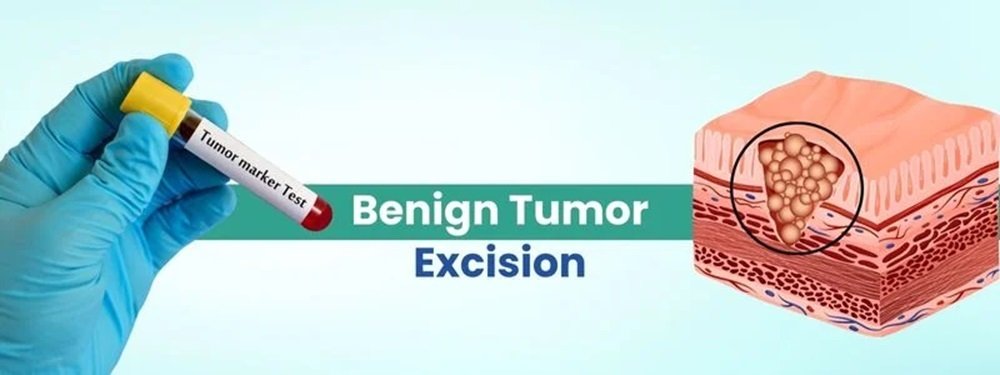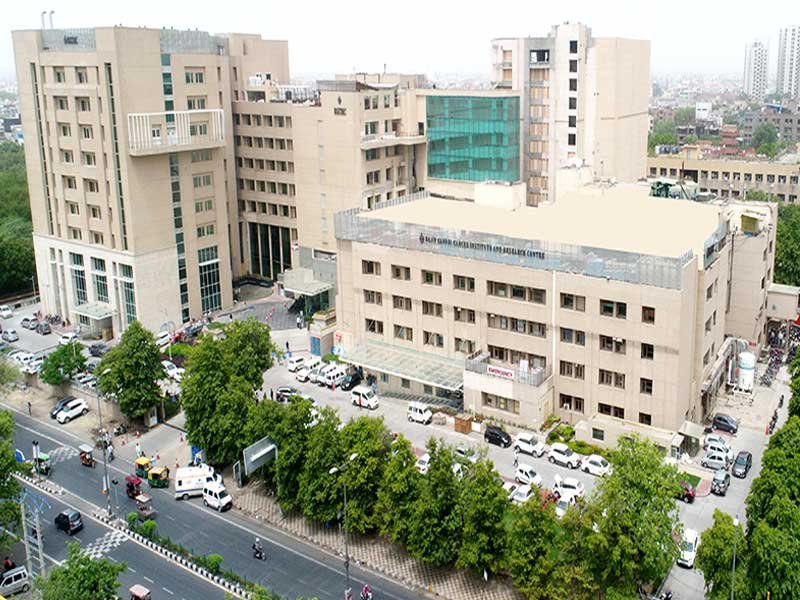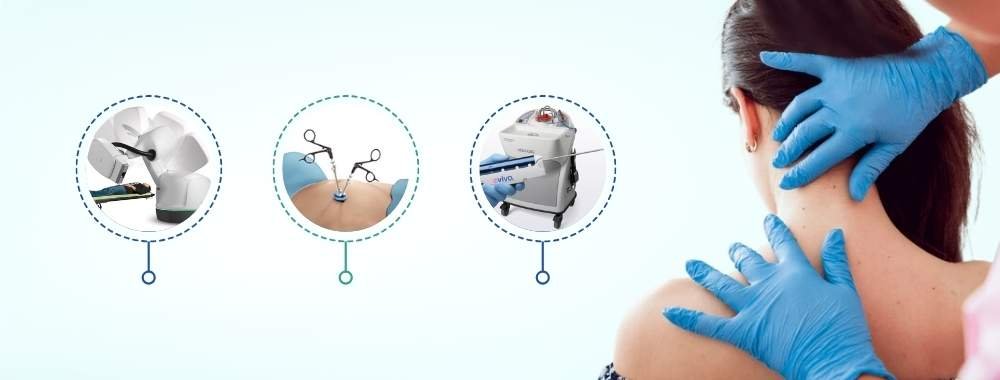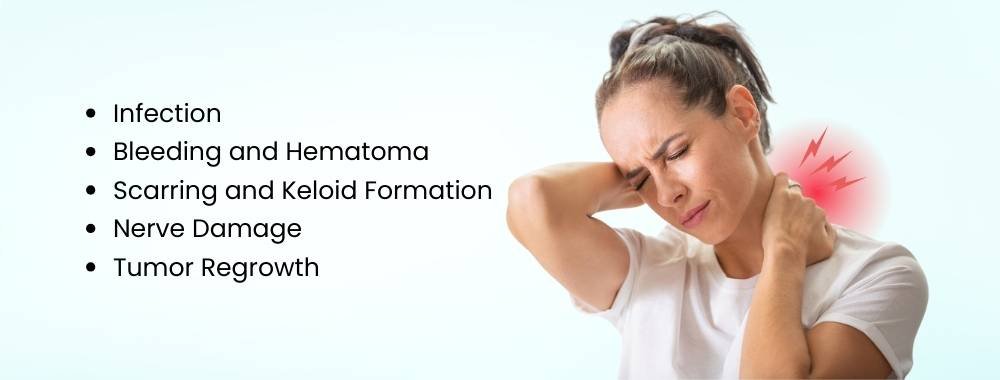Benign tumor excision in India ensures safe, advanced surgical care by expert specialists at affordable costs, offering quick recovery and improved quality of life
Recovery Time
1 Month
Success Rate
95%
Hospital Stay
4-7 Days
Treatment Type
Surgical
Home Treatments Surgical Oncology Benign Tumor Excision
Are you struggling to find an affordable treatment for a benign tumor?
Do you know?
Benign tumors, also known as benign neoplasms or benign growths, are non-cancerous cells.
If you ignore these growths, you may feel more discomfort and worry. They can affect nearby tissues and your daily life.
Good news for you!
India provides affordable treatment for removing benign tumors using a minimally invasive procedure. The country has skilled surgeons and accredited hospitals that ensure high-quality care for patients seeking treatment at a low cost.

Benign tumors are not cancerous. They do not spread to other parts of the body. However, if they press on nerves or blood vessels, they can cause pain or other health issues.
Eventually, the removal procedure should be done by surgeons to prevent further complications if it spreads too much.
The cost of a benign tumor is affordable as compared to Western countries, which include surgical costs, diagnostic tests, follow-ups, and so on.
Cost Component | Details | Estimated Cost in USD |
Pre-operative Consultation & Diagnosis | Consultations, X-rays, MRI scans, blood tests | 400 USD |
Surgery Costs | Includes surgeon fees, type of surgery, and hospital stay | 5300-6500 USD |
Rehabilitation and Follow-up | Physiotherapy sessions, medications, supportive devices, and follow-up visits | variable by Procedure |
Fill in your details and we'll get back to you soonGet Free Treatment Quote

Country | Cost Structure |
India | 5300-6500 USD |
United States | 7500 USD |
Germany | 6000-10000 USD |
Turkey | 7000-20000 USD |
◾Key Takeaways
✅ Affordable Treatment Cost: The cost of removing benign tumors in India is lower than in Western countries. International patients can save 40% compared to prices in other countries.
✅ Advanced Medical Technologies: India uses advanced technology, like minimally invasive procedures, to remove benign tumors. This approach helps patients recover faster and achieve better health outcomes.
Benign Tumor Excision cost
Treatment Name
Estimated Cost
Benign Tumor Excision 5300-6500 USD
India has top surgeons who specialize in removing benign tumors. They use advanced techniques and focus on patient-centered care. These experts offer effective treatment options that are minimally invasive and affordable.
Beds: 539
New Delhi
Beds: 230
New Delhi
Beds: 710
New Delhi
Beds: 650
New Delhi
Beds: 191
New Delhi
Beds: 310
New Delhi
Beds: 330
Gurugram
Beds: 380
New Delhi
Beds: 402
New Delhi
Beds: 1300+
Gurugram
Beds: 1000
New Delhi
Beds: 500
New Delhi
Beds: 450
Faridabad
Beds: 675
New Delhi
Beds: 500
New Delhi

Max Super Speciality Hospital, Saket

Aakash Healthcare Super Speciality Hospital

Indraprastha Apollo Hospital

BLK Max Super Speciality Hospital

Dharamshila Narayana Superspeciality Hospital

Fortis Escorts Heart Institute

Fortis Memorial Research Institute

Manipal Hospital Dwarka

Max Super Speciality Hospital Shalimar Bagh

Medanta - The Medicity Hospital

Moolchand Kharaiti Ram Hospital

Rajiv Gandhi Cancer Institute and Research Centre

Sarvodaya Hospital

Sir Ganga Ram Hospital

Venkateshwar Hospital
India's top hospitals for removing benign tumors have advanced facilities and skilled surgeons. They focus on personalized patient care and are internationally accredited. These hospitals offer safe, effective, and affordable treatment for patients worldwide.

Recent advancements in benign tumor excision in India have significantly improved with evolving technologies such as CyberKnife, laparoscopic resection, and vacuum-assisted breast biopsy and excision (VABB and VAE). Here are some notable advancements:
Necessary Diagnostic Tests
Diagnosis Tests | Description |
Biopsy | Under biopsy, the healthcare provider will remove a piece of tissue to examine the condition. |
Imaging Test | Imaging tests such as CT scans, MRI, or ultrasound provide a detailed image of structures inside the body. |
Mammogram | It’s a special type of X-ray that helps to detect abnormal growth or changes in breast tissues. |
Not all tumors are cancerous or benign, and have symptoms, and patients who experience these symptoms are recommended to consult a doctor immediately. Depending on the location of the tumor, several symptoms can affect the function of organs or senses, such as:
🟢Do’s Before Surgery
✅ Follow your doctor’s advice about fasting, medications, and lifestyle changes.
✅ Drink plenty of water to prepare your body for surgery, unless your doctor tells you not to.
✅ If your doctor gives you antibiotics or other medications before surgery, make sure to follow the schedule.
✅ After surgery, regular check-ups are important to see how you are healing and to manage any problems that may come up.
🔴Don’ts Before Surgery
❌ Do not eat or drink for the time your doctor tells you, usually for 8 to 12 hours before the surgery.
❌ Tell your doctor right away if you have any unusual pain, fever, or swelling. These could be signs of an infection or other problems.
❌ Do not lift heavy objects or do hard activities for the time your doctor advised.
❌ Do not take non-prescribed medicines and supplements without talking to your healthcare provider. They might affect your healing.
Before the Procedure
During the Procedure
After the Procedure

Complication | Description |
Infection | The incision site becomes red, swollen, and painful; it requires antibiotics or drainage. |
Bleeding and Hematoma | Bleeding during and after surgery can lead to a rise in blood under the skin, which may need to be drained. |
Scarring and Keloid Formation | Scars are common after surgery; some people may develop thicker, raised scars. |
Nerve Damage | If the tumor is close to nerves, there’s a risk of numbness, tingling, or weakness, which can sometimes be permanent. |
Tumor Regrowth | In cases where part of the tumor remains, it may grow back, especially with certain types of benign tumors. |
Why Choose Mejocare for Benign Tumor Excision in India?
✅ Team of Top Surgical Oncologists: We recommend highly qualified doctors with over 30 years of experience.
✅ JCI/NABH Accredited Hospitals: Our partner hospitals offer state-of-the-art facilities equipped with advanced technologies like robotics, machine learning, and leading-edge diagnostic and therapeutic equipment to provide comprehensive, personalized care.
✅ Additional Benefits: We ensure timely and detailed responses, accurate cost estimates, assistance with obtaining medical visas, accommodation arrangements, and priority appointments with doctors. Furthermore, we facilitate your smooth arrival in India with airport pickup, hotel drop-off, hospitalization assistance, and more.
Benign tumors are generally not life-threatening but can become a concern if they grow or show signs of malignancy. Surgery is often recommended to remove the tumor to prevent potential complications. Pre-surgery tests assess the tumor, and doctors determine if removal is necessary or if it can be safely monitored.

Medically Reviewed By
QualificationsMBBS, DTMU University, Georgia.Radiation Oncology Resident at Burdwan Medical College and HospitalDr. Aryan Malhotra is a skilled and caring doctor. He is a Radiation Oncology Resident at Burdwan Medical College and Hospital. He treats people with cancer and works closely with patients during their treatment.He completed his MBBS from David Tvildiani Medical University in Georgia. He has passed the USMLE... Read More
Registration Number: 95565
Qualification: MBBS, MD from DTMU University, Georgia, Radiation Oncology Resident at Burdwan Medical College and Hospital
The average cost of Benign Tumor Excision in India is between 3000-3500 USD.
The success rate of benign tumor excision in India is around 99%.
After surgery, you could spend three to ten days in the hospital. Your operation and recovery time will determine how long you need to stay in the hospital. You can return home to complete your recovery as soon as it is secure to do so. It may be frightening to return home after a major procedure.
In a matter of hours, the majority of patients recover completely. In some circumstances, especially in elderly patients and those who already had memory issues after surgery, this could take days. Rarely, do patients continue to experience mental side effects for a week or several months following surgery (such as moderate memory loss or foggy thinking).
Over 85% of individuals who receive treatment early go on to survive for five years. When cancer is in its late stages and the tumor is huge and difficult to remove surgically, the chances of survival drop to 40%.
After a surgical excision complications can occur such as after the surgical excision, you will most likely have a scar, the affected area is swollen or bleeding, inflammation of the nerves, and postoperative incision opening.
While staying active might aid in recuperation, you shouldn't overdo it. How much activity you can perform is something your surgeon can counsel you on. After surgery, they might advise you to refrain from exercising for a few weeks. Sporting activities and manual tasks are included. If you work a manual job, you should limit your activity until you are fully recovered.
Yes, it is necessary to have a companion.
A day or two following keyhole surgery, you can safely go on a trip. after a straightforward abdominal operation, 4 to 5 days. seven days following a more difficult eye procedure. After a coronary artery bypass graft or chest surgery, 10 to 14 days.
Yes, you can do your own research and choose your therapist.
Paracetamol can be used regularly to control mild to moderate pain. Non-steroidal anti-inflammatory drugs (NSAIDs) such as diclofenac or ibuprofen can be used to control moderate pain.
Yes, insurance will cover the cost of Benign Tumor Excision in India.
To discover the top doctors or hospitals in India, you can visit our website, mejocare on the doctors' page, you can filter and find the finest doctors, while on the hospital page, you can identify the best hospitals. Additionally, you can reach out to us, and we will gladly offer you all the necessary suggestions and information you need.
The entire Benign Tumor excision process can take 4-8 hours.
No, there is no waiting list for Benign Tumor Excision in India.
Yes, you will likely need to undergo tests such as CT scan, Magnetic resonance angiography (MRA), MRI, Ultrasound, and Regular Blood tests.
General Anaesthesia is preferred for Benign Tumor Excision in India.
After having a Benign Tumor removed, most patients may resume their jobs 3 to 4 weeks afterwards. You can get more guidance regarding going back to work from your surgeon or doctor.
Treatment for carotid artery disease may involve certain dietary and exercise modifications. These beneficial adjustments can also assist you in controlling cholesterol and high blood pressure, as well as maintaining a healthy weight.
Consume a nutritious, low-fat diet.
Obtain enough fruits and vegetables. Canning, which can have added salt or sugar, is not as preferable as fresh or frozen food.
Select high-fiber foods such as whole-grain breads, pastas, cereals, and crackers.
Consume turkey and chicken that haven't had their skin removed.
Consume fish twice per week. The arteries benefit from fish.
Reduce your intake of salt, sugar, and saturated fats.
Aftercare services provided by the hospital include Monitoring vitals, Wound care, Managing post-operative complications, Rehabilitation Services, and Follow-up.
Our care team can help you.
